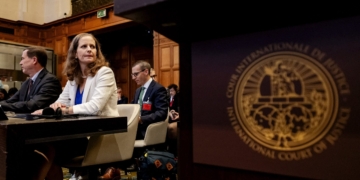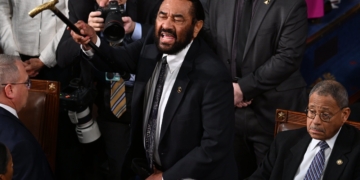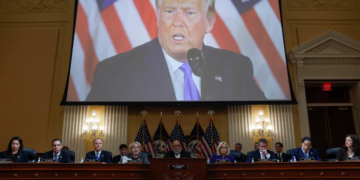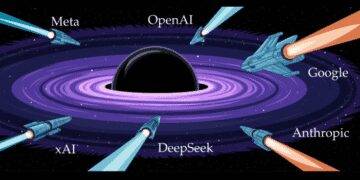In the aftermath of a high-profile meeting in New York dubbed the “Day After the War” summit — which brought together former U.S. President Donald Trump and several Arab and Muslim leaders, including Egyptian Prime Minister Mostafa Madbouly — Egypt has clarified its stance on the future of Gaza. Cairo signaled that it does not fundamentally oppose the disarmament of Hamas or the deployment of an international peacekeeping force in the blockaded territory. However, Egyptian officials emphasized that such measures must occur within a comprehensive political framework that guarantees the establishment of a Palestinian state based on the June 4, 1967 borders, backed by binding international guarantees — foremost among them a U.S. commitment to ensure Israeli compliance.
Prime Minister Madbouly stated Egypt’s willingness to discuss Hamas disarmament and the deployment of a multinational force in Gaza. Still, he tied these steps to a broader political roadmap aimed at realizing the two-state solution. Speaking during the summit titled “The Day After and Supporting Stability in Gaza,” held on the sidelines of the 80th session of the UN General Assembly, Madbouly stressed that security arrangements alone cannot succeed without addressing the root causes of the conflict.
“Any disarmament or international deployment will fail if detached from the underlying causes of the conflict,” Madbouly said, underlining that the foundation must be a negotiated two-state solution. He also categorically rejected any attempts to forcibly displace Palestinians, warning that such actions would expand the conflict and threaten regional stability. According to his official statement, all armed factions must hand over their weapons to the legitimate Palestinian Authority, and the monopoly of arms should rest solely with the state. Madbouly revealed that Egypt has already begun training Palestinian security forces and stands ready to expand those efforts with international support.
Madbouly further explained that past disarmament efforts failed when based solely on military solutions. “Two years of Israeli bombardment and destruction did not eliminate Hamas or its weapons,” he noted, arguing that disarmament must be part of a comprehensive political agreement safeguarding Palestinian rights. He also welcomed proposals for a UN Security Council–mandated international mission in Gaza, provided it is part of a broader political package that addresses Gaza, the West Bank, and East Jerusalem together — without entrenching geographic or political divisions.
Egypt also insisted on active U.S. participation on the ground to guarantee Israeli adherence to any eventual agreement and warned against pursuing security measures without a political framework and a clear timeline for establishing a Palestinian state. Madbouly praised French President Emmanuel Macron’s “historic decision” to recognize the State of Palestine and commended Saudi efforts leading to the convening of a “Two-State Solution Conference,” calling these moves key starting points toward a just and lasting peace.
Cairo reiterated its commitment to efforts aimed at ending hostilities, halting bloodshed, and supporting reconstruction efforts within a unified Palestinian territory. Madbouly confirmed Egypt’s readiness to support the creation of an international mission to empower the Palestinian Authority’s governance of Gaza. However, he stressed that such a mission must be formed based on a political agreement endorsed by both the U.S. and Israel and guaranteed by the UN Security Council — otherwise, all arrangements risk failure and prolonged conflict.
Turkish President Recep Tayyip Erdoğan described the meeting with Trump and Arab and Muslim leaders as “highly productive,” focusing on achieving a permanent ceasefire in Gaza. According to Erdoğan, a joint statement from the meeting will be published soon. Meanwhile, the UAE’s WAM news agency reported that the talks also focused on the release of Israeli hostages and measures to address the humanitarian crisis in Gaza. The summit, held on the sidelines of the UN General Assembly, brought together leaders from Qatar, Saudi Arabia, Egypt, Jordan, the UAE, Turkey, Indonesia, and Pakistan.
FAQ:
Q1: Does Egypt support disarming Hamas?
A1: Yes, but only if it is part of a broader political plan that leads to a Palestinian state and is supported by strong international guarantees.
Q2: What is Egypt’s position on deploying international forces in Gaza?
A2: Egypt supports the idea conditionally — it must be approved by the UN Security Council, backed by the U.S. and Israel, and part of a comprehensive political solution.
Q3: How does Egypt view the forced displacement of Palestinians?
A3: Egypt strongly rejects any attempts at displacement, warning that such actions would widen the conflict and destabilize the region.
Q4: Why does Egypt insist on a political framework?
A4: Cairo believes that without a political solution addressing the root causes, security measures like disarmament will fail, as seen in past attempts.
Egypt has expressed conditional support for Hamas disarmament and the deployment of international forces in Gaza following a high-level summit in New York. However, Cairo insists these steps must occur within a political framework leading to a Palestinian state on the 1967 borders, backed by binding international guarantees. Egypt also rejects any forced displacement of Palestinians and calls for U.S. involvement to ensure Israeli compliance with future agreements.













